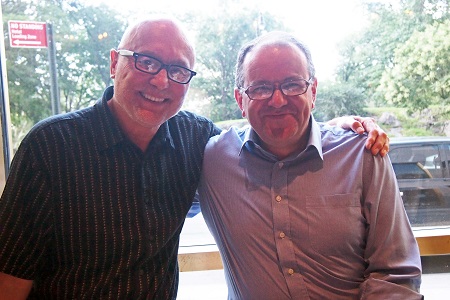Review
Word Nerd
Dispatches from the Games, Grammar and Geek Underground.
By John D. Williams Jnr. – former executive director of The National SCRABBLE® Association
In April 1993, just a month after I took over as Clubs Manager at Spears, Alfred Butts – the inventor of Scrabble died. At that point, I knew little of Butts’s life. I called John Williams and introduced myself. Although he was, no doubt, under much more pressure than I was from journalists wanting to write about Butts he was unstintingly helpful and gracious, enabling me to deal with the first of many media crises in my life at Spears, now Mattel. This was the start of a great relationship which endured for the 20 years that I was involved in Scrabble promotion.
 The book is a tour-de-force covering the highlights of his, close on, 25 years of work for Hasbro on Scrabble and a great deal more. The competitive Scrabble world is only a small part of the audience who would value this book so there are some elements ,which would come as no surprise to anyone who has been around the Tournament scene for a few years, that will be enjoyed by word enthusiasts not part of our scene. The principal subjects he writes about are how he got the job, the early 1990’s controversy over whether rude words should be allowed in Scrabble, the WSC, the US School Scrabble programme, some of the media exposure Scrabble has gotten over the years and how it all ended. There are also chapters on how words get into the dictionary, John’s short playing career and a well-researched piece on why men are better at Scrabble than women.
The book is a tour-de-force covering the highlights of his, close on, 25 years of work for Hasbro on Scrabble and a great deal more. The competitive Scrabble world is only a small part of the audience who would value this book so there are some elements ,which would come as no surprise to anyone who has been around the Tournament scene for a few years, that will be enjoyed by word enthusiasts not part of our scene. The principal subjects he writes about are how he got the job, the early 1990’s controversy over whether rude words should be allowed in Scrabble, the WSC, the US School Scrabble programme, some of the media exposure Scrabble has gotten over the years and how it all ended. There are also chapters on how words get into the dictionary, John’s short playing career and a well-researched piece on why men are better at Scrabble than women.
My favourite bits were the insights into how John garnered so much publicity for US Scrabble. He clearly has a plethora of important media contacts which he was able to exploit over the years. There are some nice vignettes about his successes like Martha Stewart & Jack Black and his failures, principally Jennifer Lopez! There are also stories about people we know well – Joel Sherman, the late Robert Felt and Mark Nyman – and how they handled their ’15 minutes of fame’. Being responsible for Joel’s expectoration cup was clearly one of his less enjoyable experiences but his piece about Nyman’s 1993 WSC win strongly evoked what a force Mark was in Scrabble in the 1990’s and, for me, made all the more poignant my regret over his all too fleeting appearances on the scene in the last few years.
The chapter on the rude words controversy is funny and revelatory. He clearly shows just how preposterous it is to ask anyone to compile a list of words to be expurgated from the word list. And did an Irishman really complain about ‘paddy wagon’ being in a dictionary? It’s either a good story or a very good joke. The expurgated list itself appears later on as an appendix.
The WSC also receives a fair amount of coverage and of course John played a large part in its genesis. The earlier tournaments are well described but I am surprised that the WSC’s that John was not involved with are not acknowledged at all in the book. He mentions the SCT’s in Prague 2013 and London 2014 but it’s as if those Championships from 2003-2011 didn’t take place. It’s wrong to say, as he does, that Hasbro and Mattel decided to ‘either scale back or eliminate their financial support for international events’. Hasbro might have done in 2004 (not 2001 as he states) but Mattel continued to back the WSC, the 2011 event in Warsaw had as much prize money and a longer duration than any previous event.
That’s my one major gripe with the book but any player who’s interested to know how the US and world Tournament scene evolved to where it is today or, god forbid, someone who wants an insight into what it’s like to represent the corporate world amongst a throng of Scrabblers, will like this book immensely.
Philip Nelkon